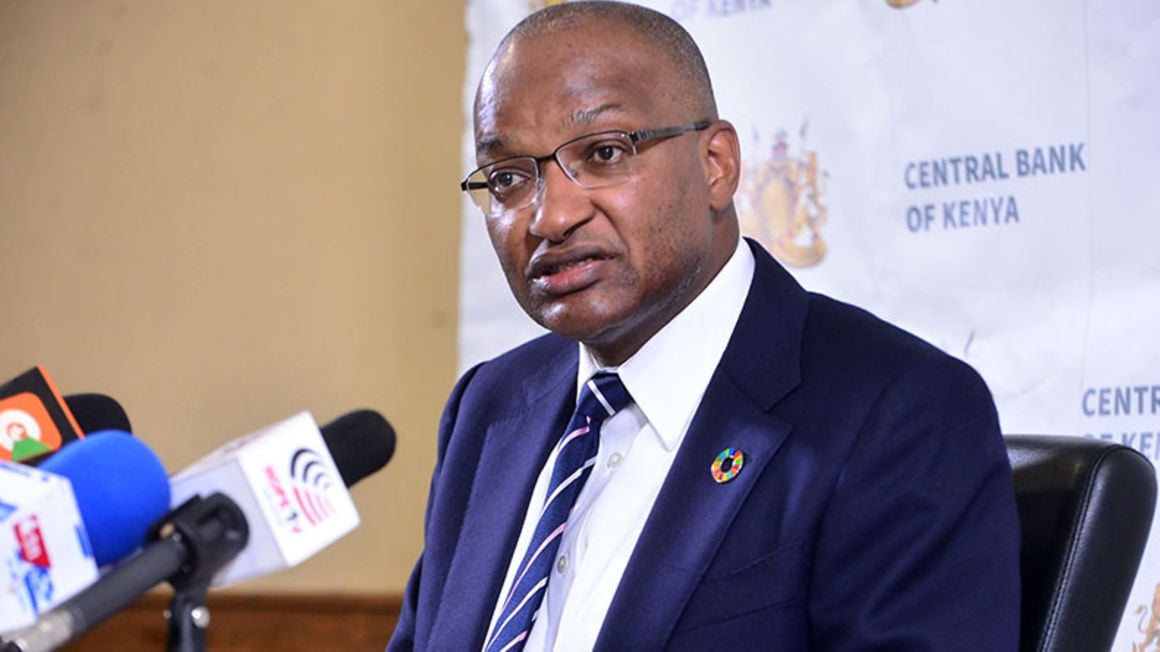
Central Bank of Kenya Governor Patrick Njoroge. FILE PHOTO | NMG
Summary
- CBK data shows the foreign reserves dropped to $8.627 billion (Sh935.25 billion), enough to cover 5.23 months’ worth of imports, from $8.838 billion (Sh957.86 billion) the previous week.
- In a media briefing Wednesday, CBK governor Patrick Njoroge said that the regulator has continued to make periodic external payments on behalf of the State.
Kenya’s foreign exchange reserves dropped by Sh22.6 billion ($211 million) last week on the back of external payments by the Central Bank of Kenya (CBK) on behalf of the government.
CBK data shows the foreign reserves dropped to $8.627 billion (Sh935.25 billion), enough to cover 5.23 months’ worth of imports, from $8.838 billion (Sh957.86 billion) the previous week.
In a media briefing Wednesday, CBK governor Patrick Njoroge said that the regulator has continued to make periodic external payments on behalf of the State.
“The government has to make some external payments, on those loans that they have. We are making those payments for them,” said Dr Njoroge without giving specifics.
The reserves serve as a buffer against exchange rate volatility, indicating to the market that the CBK has enough muscle to intervene.
This year, the reserves have been boosted significantly by foreign loans from international development financiers like the World Bank, AfDB and the IMF, who lent Kenya more than $2 billion in Covid-19 support financing.
Analysts said that the payments were likely to be on a syndicated loan, given that none of the Eurobonds have their interest payment dates falling in September.
“The higher probability is an external debt repayment, most likely a syndicated loan which has lower visibility,” said Genghis Capital head of research Churchill Ogutu.
The government is due to spend Sh179.6 billion in foreign debt principal repayments and Sh154.7 billion in interest payments in the current fiscal year, according to the draft 2020 budget review and outlook paper released early last month.
In the 2019/2020 fiscal year, the Treasury spent Sh101.6 billion in external principal payments and Sh121.8 billion in interest payments.
Mr Ogutu said the weaker shilling—it has depreciated by seven percent against the dollar this year—will increase the shilling’s equivalent of Kenya’s debt servicing obligations.
Currently, the shilling is exchanging at 108.49 against the dollar.

No comments:
Post a Comment